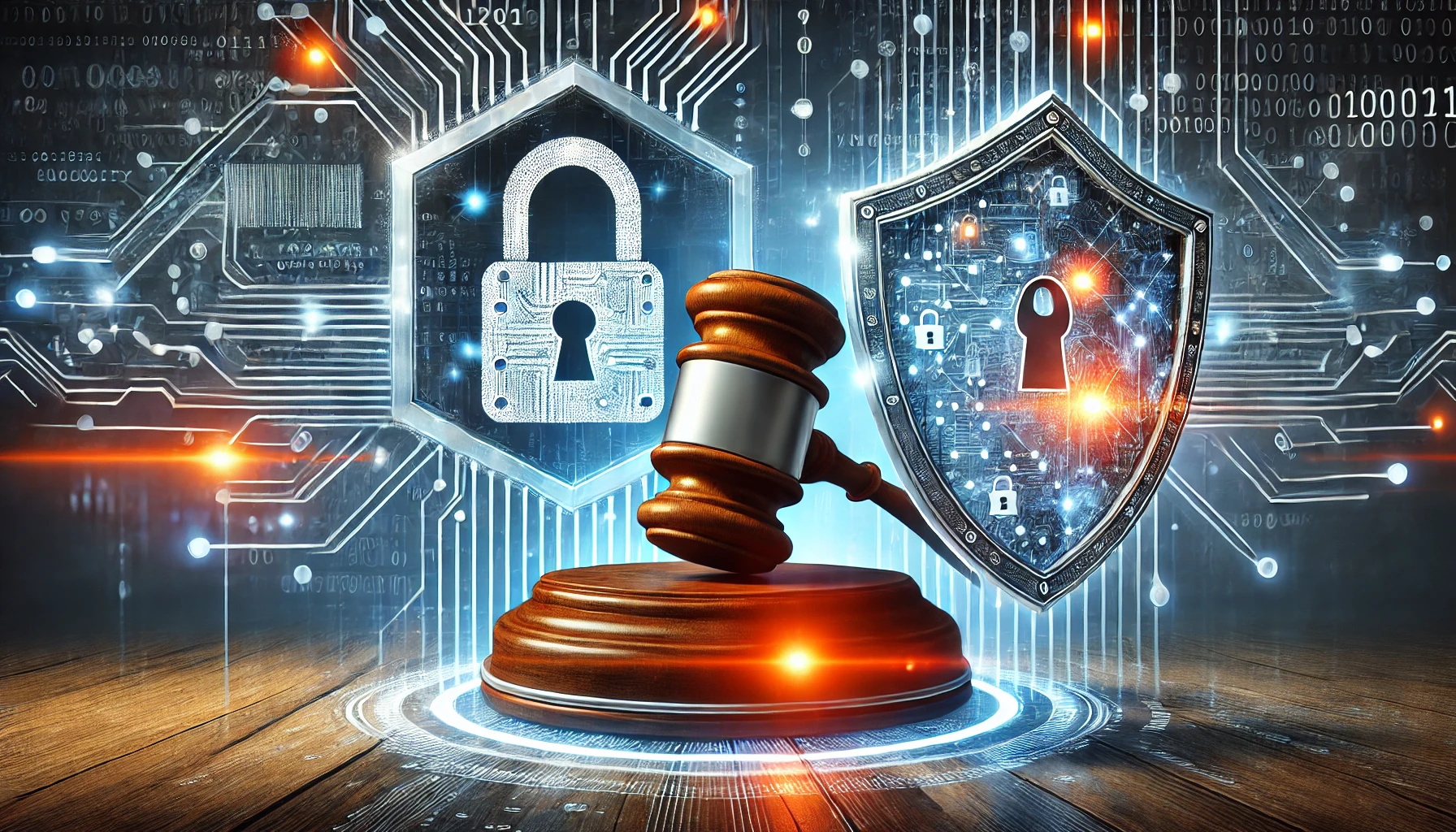
Data rooms have quickly become a staple across various industries, including the legal sector, where the secure management and sharing of vast amounts of sensitive information are paramount.
According to Deloitte, data breaches in the legal industry are increasingly common. No wonder nearly 79% of PwC study respondents expect to increase their cybersecurity budgets in 2024 and beyond. VDRs help address this by offering advanced encryption and audit trails that mitigate the risk of unauthorized access and data breaches.
Today, we’re diving deep into legal virtual data rooms, understanding what makes them essential for this industry and why.
What is a data room for law firms?
A virtual legal data room, or legal data room for law firms is a specialized online platform designed to securely manage and share sensitive documents. It’s an indispensable tool for modern legal practices, as it offers key benefits:
- Enhanced security: With advanced encryption, strict access controls, and comprehensive audit trails, VDRs ensure that confidential legal information is protected against unauthorized access and breaches. According to a KPMG report, proper implementation of these technologies is crucial to maintaining data integrity in the legal sector (KPMG).
- Regulatory compliance: VDRs help law firms stay compliant with industry regulations by
offering secure, trackable document management systems that meet stringent legal standards. - Efficient document management: By centralizing document storage and providing easy access, VDRs streamline the management of large volumes of legal documents, saving time and reducing administrative burdens. Thanks to features like audit trails, Q&A, and advanced permissions, law firms maximize the potential of VDRs, as highlighted by Thomson Reuters.
- Seamless collaboration: These platforms enable real-time, secure collaboration among multiple stakeholders, improving communication and workflow during complex legal proceedings and transactions.
- Tailored solutions: VDRs can be customized to fit the unique needs of law firms, offering scalable solutions that adapt as the firm grows and its needs evolve.
Such an extensive list of benefits explains why this expert yet approachable solution is becoming essential for law firms seeking to enhance their operational efficiency and security.
Popular data rooms for lawyers
Overall rating:
4.9/5
Excellent

Overall rating:
4.8/5
Excellent

Overall rating:
4.7/5
Excellent
Where do lawyers use virtual data rooms?
Lawyers use a virtual data room in a variety of other transactions and processes where secure and efficient document management is crucial.
That is the reason large enterprises dominate the VDR market due to their need to securely transfer substantial amounts of sensitive information. Legal agencies use VDRs to store and share electronic client data securely for enhancing due diligence, litigation, restructuring, and many other processes.
Here are some key areas where lawyers rely on virtual data solutions:
Legal due diligence
Legal due diligence is a crucial process in transactions like mergers and acquisitions, where lawyers meticulously review contracts, licenses, and other legal documents to identify potential risks. This careful examination ensures that clients are fully informed before making significant decisions.
A virtual data room enhances a due diligence process by providing a secure, organized platform for managing and reviewing large volumes of sensitive and confidential documents, ensuring that the due diligence process is both thorough and efficient.
Protected document storage
Protected document storage in a legal data room is essential for law firms handling sensitive client information and confidential legal documents.
Virtual data rooms offer a secure solution for this need in law practice, providing advanced encryption, access controls, and audit trails to ensure that documents are stored safely and are only accessible to authorized personnel.
In addition to security, data rooms offer the advantage of centralized storage, making it easier for legal teams to organize and manage documents. This not only improves legal firms’ efficiency but also reduces the risk of data breaches or unauthorized access, giving law firms peace of mind that their client’s information is protected at all times.
IP attorneys
IP attorneys are essential in safeguarding intellectual property rights, from patents to trademarks, which can be a company’s most valuable assets. Their work involves the careful handling of sensitive documents, such as patent filings, licensing agreements, case-related documents, and litigation records.
The ability to control access to confidential data and monitor document activity within a virtual data room is highly beneficial for IP attorneys, especially when managing intricate cases with multiple stakeholders. This level of oversight not only protects intellectual property but also enhances collaboration, allowing attorneys to concentrate on securing their clients’ rights without concerns over data breaches or unauthorized disclosures.
Restructuring and insolvency
Restructuring and insolvency processes are intricate and demand careful management of sensitive documents. VDRs streamline these tasks by providing a secure, centralized platform where stakeholders can both access documents and share critical information in real time, ensuring everyone stays informed throughout the process.
These platforms also support the entire restructuring lifecycle, from due diligence to asset sales, offering secure document sharing, audit trails, and customizable access, making them essential for maintaining compliance and confidentiality during these complex proceedings.
Litigation
In the litigation process, managing and sharing large volumes of sensitive documents is a key responsibility for the legal team. Virtual data rooms (VDRs) make this task more manageable by providing a secure, centralized platform where legal teams can efficiently collect, organize, and distribute documents to clients, expert witnesses, and other stakeholders.
VDRs also offer features like audit trails and customizable access permissions, which are essential for maintaining control of relevant documents and ensuring compliance during litigation and other legal transactions. These tools allow legal teams to monitor document activity closely and ensure that only authorized individuals have access to specific files. This oversight enhances the efficiency of the litigation process and helps prevent unauthorized access or data breaches.
Corporate minute books
Corporate minute books are essential records under corporate law that document the major decisions, meetings, and actions taken by a company’s board of directors and shareholders. Maintaining these records accurately and securely is crucial for legal compliance and for providing a clear historical account of the company’s governance.
Virtual data rooms (VDRs) simplify the management of corporate minute books. This not only ensures that the records are protected from unauthorized access but also makes them easily accessible for review by board members, auditors, or legal advisors whenever needed.
M&A deals
A virtual data room is also a vital component in the mergers and acquisitions (M&A) processes. During the due diligence process, VDRs allow both buyers and sellers to securely access important confidential documents like financial statements, contracts, and compliance records, all while maintaining strict control over who can view or interact with these files.
In addition, VDRs streamline M&A transactions with features like document indexing, version control, and audit trails. These features help legal and financial teams organize documents, track any changes, and monitor user activity, making the due diligence process more efficient and helping to keep negotiations on track.
How do virtual data rooms benefit law firms?
A virtual data room offers significant advantages to law firms. From ensuring compliance and security to enhancing collaboration and saving time and costs, VDRs are essential tools that improve the way law firms operate. Below is an overview of some of the key benefits of VDRs, while indicating which VDR solutions represent those benefits the most:
| Feature | Benefit | Top providers |
| Compliance | VDRs ensure compliance with industry standards like ISO 27001, SOC 2, and HIPAA | Ideals, Firmex, Intralinks, Ansarada |
| Security | Advanced security features include fence view, time and IP restrictions, user permissions, and more | Ideals, Datasite, Ansarada |
| Time and Cost Savings | VDRs reduce the need for physical document storage and administrative tasks | Merrill DatasiteOne, Ideals, Firmex, Intralinks |
| Collaboration Tools | Features like real-time document sharing and collaborative editing tools enhance team coordination | Intralinks, Ideals, Firmex,, Ansarada |
| Control Over Documents | VDRs provide audit logs, user activity tracking, and detailed permissions | Ideals, Merrill DatasiteOne, Ansarada |
| Premium Support 24/7/365 | Round-the-clock support is vital for resolving issues quickly and minimizing downtime, especially during time-sensitive legal cases | Intralinks, Ideals, Firmex, Merrill DatasiteOne |
Compliance
Ensuring compliance with legal and regulatory standards is a top priority for law companies. VDRs help legal firms meet these requirements by offering industry-leading security certifications such as ISO/IEC 27001, SOC 2, and HIPAA compliance. These certifications ensure that the legal data room meets rigorous standards for information security management and data protection.
Security measures
Security is a critical concern for many organizations when handling confidential client information. VDRs offer advanced security features such as fence view, which restricts unauthorized viewing, and time and IP restrictions to control access. Additionally, VDRs provide multiple levels of user permissions, remote shred, and remote shred capabilities to ensure that sensitive documents can be securely destroyed when no longer needed.
Time and cost savings
By streamlining document management and reducing the need for physical storage, VDRs help law organizations save both time and costs. They eliminate the need for printing, courier services, and extensive administrative work, allowing legal firms to focus on higher-value tasks.
VDRs enhance collaboration by providing real-time document-sharing and communication tools that save time and allow multiple stakeholders to work together seamlessly. Features such as Q&A modules, secure chats, and version control ensure that all parties are on the same page during complex legal transactions.
Control over documents
Law firms need to maintain control over their documents, and VDRs provide the tools to do so effectively. Features like audit logs and the ability to track user activity down to the time and page level give legal firms full visibility into who accessed what, and when, ensuring accountability and security of legal data.
Premium support 24/7/365
Having access to expert support around the clock is essential for law firms working on time-sensitive cases. VDRs that provide 24/7/365 support ensure that any issues can be resolved quickly, minimizing downtime and keeping the legal process on track.
Ease of use
A user-friendly interface and quick setup are critical for law firms that need to get up and running without extensive training. VDRs that offer intuitive interfaces, easy document uploads, and minimal setup time allow legal teams to focus on their work rather than struggling with technology.
Best practices for using data rooms
Best practices for using a data room in law firms involve a combination of security, compliance, and operational efficiency.
- Law firms should start by implementing strict access controls, such as role-based permissions and two-factor authentication, to safeguard sensitive documents.
- Regular audits and updates to these permissions are essential to maintaining security and transparency.
- Leveraging VDR features like real-time document sharing, Q&A sections, and detailed tracking helps streamline collaboration and keeps all parties informed and accountable.
- Compliance with industry standards like ISO 27001 and SOC 2 is critical to ensure that the VDR meets legal and regulatory requirements.
- Additionally, selecting a user-friendly VDR with 24/7 support can enhance the overall experience and reduce downtime, allowing legal firms to focus more on their cases and less on administrative tasks.
Conclusion
In conclusion, data room providers have become a key tool for law organizations, providing a secure and efficient way to manage sensitive legal documents and facilitate complex legal processes.
Whether it’s ensuring compliance with stringent regulatory standards, enhancing security with advanced features, or streamlining document management and collaboration, VDRs offer a comprehensive solution that significantly improves the operational efficiency of legal practices.
The ability to customize and scale these solutions as the firm grows further solidifies the role of VDRs as an essential component in the modern legal landscape.


